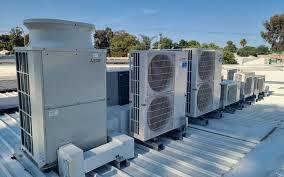When it comes to home comfort, few systems play a bigger role than heating, ventilation, and air conditioning. Your HVAC system works hard throughout the year—cooling in the summer, heating in the winter, and maintaining air quality every day in between. Like any complex system, it gives signals when something isn’t right. A good HVAC contractor will encourage homeowners to spot these signs early to prevent costly repairs or total breakdowns.
The Value of Paying Attention Early
Many homeowners wait until their system stops working entirely before calling for help. While it might seem efficient to delay, the reality is that small issues often snowball into major expenses. Identifying symptoms early can extend the lifespan of your system, improve efficiency, and keep energy costs manageable. The sooner you address a problem, the less likely it will turn into a full-blown emergency.
Unusual Noises That Warrant a Second Listen
One of the most common early indicators of trouble is unusual noise. While a soft hum is normal, grinding, rattling, or banging noises should be investigated right away. These sounds can be caused by loose components, debris in the system, or worn-out parts that need replacing. Ignoring them can lead to significant internal damage, turning a minor repair into a system overhaul.
Irregular Temperature Control
If your home develops hot and cold spots or if the thermostat settings seem to have little effect, it could indicate airflow issues, duct problems, or failing components. While adjusting vents and checking filters is a good first step, persistent uneven heating or cooling should be addressed by a professional. A qualified North Pittsburgh HVAC contractor can pinpoint the root cause and restore balanced comfort.
Rising Energy Bills Without Increased Usage
Another red flag is a sudden spike in your energy bill despite consistent usage habits. This often signals that your system is working harder to achieve the same results. Common culprits include clogged filters, dirty coils, refrigerant leaks, or worn motors. Routine maintenance can identify and fix these issues before they hit your wallet.
Changes in Air Quality
If you notice an increase in dust, musty odors, or heightened allergy symptoms at home, your HVAC system may be failing to filter and circulate air properly. This could be due to dirty ducts, clogged filters, or a malfunctioning air handler. Addressing indoor air quality issues promptly can improve health and comfort while preventing larger system failures.
Excess Moisture or Leaks
Moisture where it doesn’t belong—whether around your indoor unit, near ducts, or inside walls—can indicate problems ranging from clogged condensate lines to refrigerant leaks. Not only can this damage your HVAC system, but it can also lead to mold growth and structural issues in your home.
Short Cycling
Short cycling occurs when your system turns on and off more frequently than normal. This not only strains components but also drives up energy consumption. Causes can range from incorrect sizing to malfunctioning thermostats or electrical issues. A thorough inspection can determine whether the problem lies in the equipment itself or in the installation.
The Role of Preventative Maintenance
Scheduling routine inspections with a trusted company like Climate Systems Air Conditioning & Heating ensures small issues are caught early. Preventative maintenance can include checking refrigerant levels, cleaning coils, tightening electrical connections, and ensuring all moving parts are lubricated. This approach keeps systems efficient and dependable year-round.
Knowing When to Replace vs. Repair
An honest HVAC contractor won’t recommend replacement unless it’s truly necessary. Age, repair frequency, and overall efficiency will all factor into the decision. For instance, if your system is over 15 years old and repairs are becoming more frequent, replacement might be the more cost-effective choice. On the other hand, a newer system with a single failing part can usually be repaired quickly.
How Homeowners Can Help
While professional expertise is critical, homeowners play a vital role in their system’s longevity. Changing filters regularly, keeping vents unobstructed, and monitoring thermostat settings all contribute to smoother operation. Educating yourself about your system’s basic functions will make it easier to spot irregularities.
Building a Long-Term Relationship with Your Contractor
Trust is key when it comes to home services. Having a consistent provider means they understand your system’s history and can make informed recommendations. Climate Systems Air Conditioning & Heating values long-term relationships, focusing on honest advice and tailored solutions that meet your home’s specific needs.
Preparing for Seasonal Transitions
Seasonal changes are a perfect time for inspections. Before summer heat or winter cold arrives, having your system evaluated ensures you won’t be caught off guard. Seasonal tune-ups often include cleaning components, checking for leaks, and testing system controls—steps that can make a big difference in performance and reliability.
Final Thoughts
Spotting the early warning signs of HVAC trouble can save you money, time, and stress. By paying attention to unusual noises, temperature inconsistencies, rising bills, and air quality issues, you can address problems before they escalate. Partnering with a knowledgeable HVAC contractor ensures that your system receives the care it needs, when it needs it. With the right approach, your home stays comfortable year-round, and your HVAC system serves you well for many years to come.






